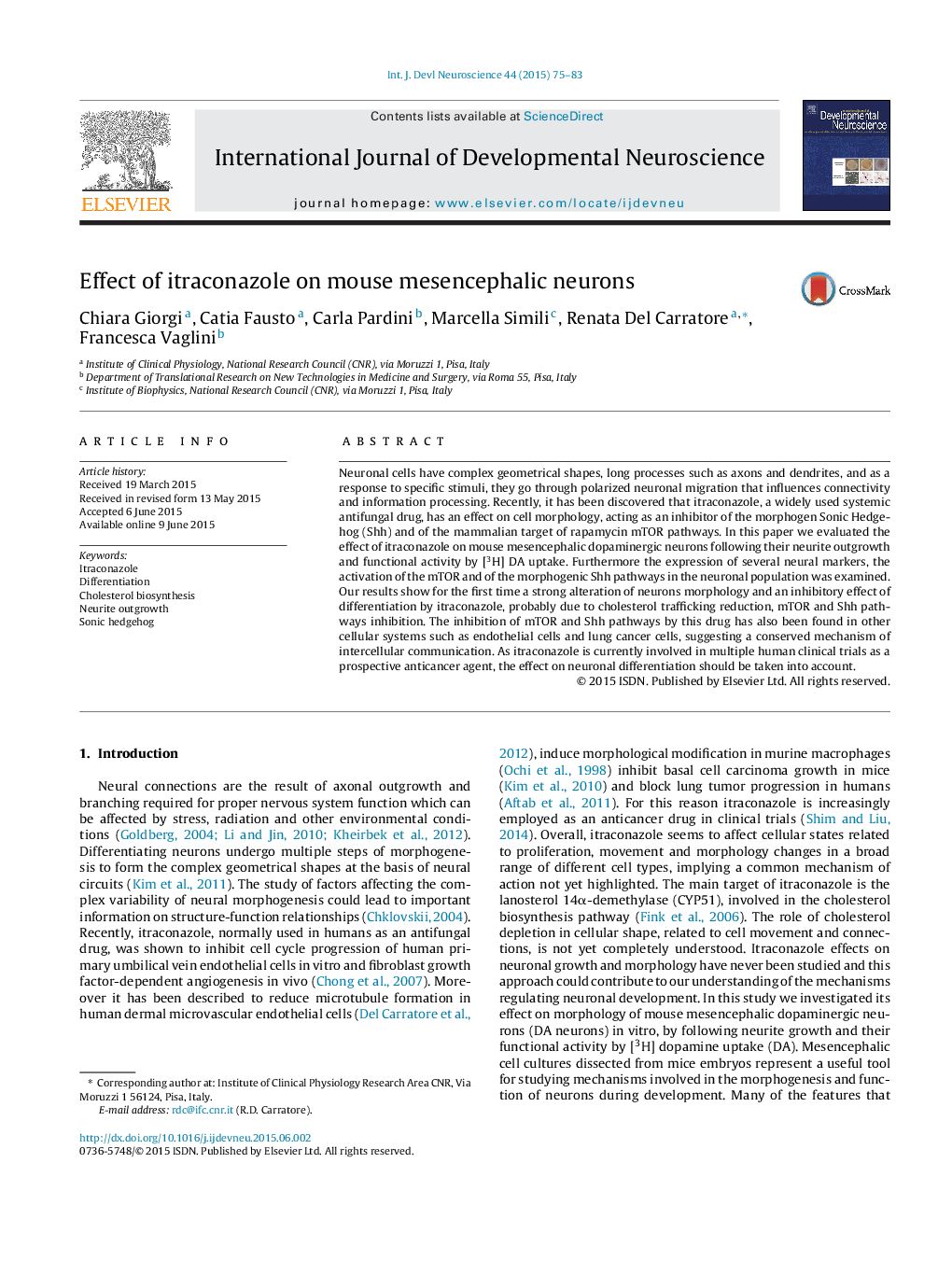| Article ID | Journal | Published Year | Pages | File Type |
|---|---|---|---|---|
| 2785849 | International Journal of Developmental Neuroscience | 2015 | 9 Pages |
•Antifungal drug itraconazole inhibits neurite outgrowth in vitro during differentiation.•Cholesterol partially protects from damage induced by itraconazole.•Itraconazole inhibited differentiation acting at multiple levels: mTOR and Shh pathways.•Itraconazole affects neuronal morphology acting on the same pathways as in endothelial cells and lung cancer cells.
Neuronal cells have complex geometrical shapes, long processes such as axons and dendrites, and as a response to specific stimuli, they go through polarized neuronal migration that influences connectivity and information processing. Recently, it has been discovered that itraconazole, a widely used systemic antifungal drug, has an effect on cell morphology, acting as an inhibitor of the morphogen Sonic Hedgehog (Shh) and of the mammalian target of rapamycin mTOR pathways. In this paper we evaluated the effect of itraconazole on mouse mesencephalic dopaminergic neurons following their neurite outgrowth and functional activity by [3H] DA uptake. Furthermore the expression of several neural markers, the activation of the mTOR and of the morphogenic Shh pathways in the neuronal population was examined. Our results show for the first time a strong alteration of neurons morphology and an inhibitory effect of differentiation by itraconazole, probably due to cholesterol trafficking reduction, mTOR and Shh pathways inhibition. The inhibition of mTOR and Shh pathways by this drug has also been found in other cellular systems such as endothelial cells and lung cancer cells, suggesting a conserved mechanism of intercellular communication. As itraconazole is currently involved in multiple human clinical trials as a prospective anticancer agent, the effect on neuronal differentiation should be taken into account.
